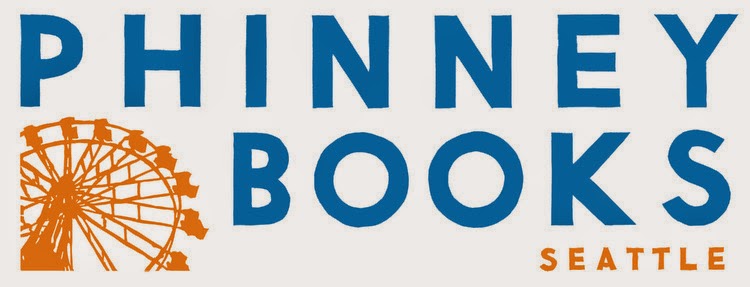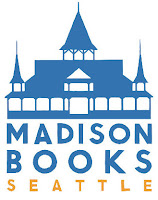“There is a nameless force that makes explicable the most extreme of human actions ... those actions that are attractive only because they are evil and dangerous; they possess the fascination of the abyss.”--Charles BaudelaireDr. Hannibal Lecter--physician, monster, many of many parts--is set to return in Hannibal Rising, Thomas Harris’ prequel to Red Dragon (1981), The Silence of the Lambs (1988),
 and Hannibal (1999). The novel will reach both UK and U.S. bookstores on December 5. In anticipation of the good doctor’s reappearance, let’s take a quick look back at the history of the Hannibal Lecter Phenomenon.
and Hannibal (1999). The novel will reach both UK and U.S. bookstores on December 5. In anticipation of the good doctor’s reappearance, let’s take a quick look back at the history of the Hannibal Lecter Phenomenon.I first discovered author Harris when, in 1981, I chanced across a copy of Red Dragon--in a Christian bookshop, of all places. The novel featured a big cover blurb by Stephen King, and it didn’t take me long after cracking Dragon’s spine to realize that this was a work of great merit, destined to make a mark on the crime/thriller fiction genre. It remains solidly on my top-10 list of crime novels. Michael Connelly (Echo Park) once told me that Dragon heavily influenced him and even strengthened his desire to become a crime novelist.
That book was the second from Tennessee-born former journalist Harris, who’d debuted with the still uncannily topical Black Sunday (1975), about Middle Eastern terrorists threatening to explode a blimp over a packed football stadium during the Super Bowl. All of Harris’s novels have now been filmed (with Red Dragon having twice been adapted to the silver screen), and each remains solidly in print throughout the world. The influence of Harris’ fiction cannot be underestimated: the serial killer as a protagonist/antagonist has now become a staple of modern crime fiction, for good or ill.
Harris grew up in the town of Rich, Mississippi, but surprisingly little else is known about his life, as he jealously protects his privacy. After being married twice, with one daughter to show for it, he now splits his time between Sag Harbor, New York, and Florida. Despite his comparatively limited output (five novels over 31 years), his readership continues to grow and his reputation now extends far beyond the circle of crime fiction and thriller readers. Much of his success can certainly be attributed to the popularity of the fictional Hannibal Lecter, who, like the gothic villains before him--including Professor James Moriarty, Count Dracula, Edward Hyde, et al.--exudes the captivating magnetism of a car-crash. In the three novels featuring Lecter, we see him evolve from backstage villain (Red Dragon), to a side-stage and supporting role (in The Silence of the Lambs), and finally in 1999 to center stage in Hannibal (originally titled The Morbidity of the Soul).
Dragon’s successor, The Silence of the Lambs, was a crime-writing milestone that had Harris’ contemporaries extolling his talents. I recall receiving an early review copy and reading it in an almost hypnotic fever. If memory serves, both Roald Dahl and Clive Barker described the book as “razor-sharp entertainment.” It remains one of the all time great works of crime fiction. When filmed, The Silence of the Lambs took the Oscars by storm, such was the intensity of the source material for Ted Tally’s screenplay. The movie also reinvigorated actor Anthony Hopkins’ career and earned Jodie Foster the covers of magazines worldwide. I’d go as far as to say that, thanks to the strength and intensity of Harris’ characterizations, Clarice Starling and Hannibal Lecter have become permanent fixtures in the pantheon of memorable imaginary figures.
By the time Hannibal finally came due at the end of the last century, Delacorte Press was prepared to capitalize on it, big-time. The American publishing house issued a press release at Easter 1999 stating that Harris (who’d scored an alleged $9 million advance for the novel, as part of a two-book deal) had delivered his long-awaited manuscript, and that presses were rolling to issue the book globally on June 8 of that year. Hannibal was shrouded in secrecy. There would be no proof or review copies sent about, and an embargo was placed on booksellers, telling them not to issue the work for sale until the global launch date.
Being, by this point, an aficionado of Harris’ fiction, I was a man demented (pun intended). When Hannibal’s surreal cover art was released, along with a teaser synopsis about the revenge of a former Lecter victim, Mason Verger, my excitement only mounted. I didn’t discover until later that the book jacket features the coat of arms for the Visconti family, a noble house from which Dr. Lecter believes himself to be descended. That image was interesting, too, in that it’s part of the Italian car giant Alfa Romeo’s logo, and Harris drove about in a red Alfa while researching his novel in Italy. (While in Florence, the author also researched the Italian serial killer Pietro Pacciani, dubbed The Monster of Florence. Harris sat through the trial of Pacciani, who was convicted of committing seven of the eight murders for which he was charged. Pacciani was later freed on appeal, though--only to die mysteriously before he could face a retrial.) This graphic reference was just one of the winks in Hannibal, a book that, like its predecessors, is peppered with multiple and often conflicting meanings, cynical observations of the human condition, and black humor that in Hannibal transformed itself into the Grand Guignol tradition of French theatre.
As the release of Hannibal approached, I found myself feeling desperate for a copy. Hearing that Maxim Jakubowski, crime writer and proprietor of the Murder One bookshop in Charing Cross Road, London, planned to open his shop at midnight on June 7 so that he could begin selling copies of Harris’ latest book, I organized a day off and then booked a hotel room near the store so that I could be among the first people to purchase Hannibal. Little did I imagine the sort of media circus that would gather about this event.
I arrived outside Murder One early and wound up sitting next to a couple of drunks sipping cider from plastic bottles. As darkness fell, and the inebriates left to seek out more alcohol, other people began arriving, and
 a bristling queue formed. Also in that line was the then-budding crime writer Mark Billingham, who turned out to be a fellow Harris aficionado. Soon, the press swept in. Ravi Mirchandani, publishing director for Random House, had organized a media blitz, and just as Jakubowski arrived with bottles of Chianti and fava beans, an actor appeared in blue overalls, looking remarkably like the Lecter of Anthony Hopkins’ portrayal. Then, from out of the shadows came representatives of the BBC, ITV, C5, and CNN, all waving cameras and lights and looking for sound bites. As I was at the front of the queue, I ended up appearing on television, much to the embarrassment of my wife and family. But at least my mission was accomplished: I got my hands on a copy of Hannibal.
a bristling queue formed. Also in that line was the then-budding crime writer Mark Billingham, who turned out to be a fellow Harris aficionado. Soon, the press swept in. Ravi Mirchandani, publishing director for Random House, had organized a media blitz, and just as Jakubowski arrived with bottles of Chianti and fava beans, an actor appeared in blue overalls, looking remarkably like the Lecter of Anthony Hopkins’ portrayal. Then, from out of the shadows came representatives of the BBC, ITV, C5, and CNN, all waving cameras and lights and looking for sound bites. As I was at the front of the queue, I ended up appearing on television, much to the embarrassment of my wife and family. But at least my mission was accomplished: I got my hands on a copy of Hannibal.In the days afterward, I was amused by the dichotomy of critical opinion of that novel. In Europe, the majority of reviewers and writers applauded Hannibal. David Sexton of the London Evening Standard even went on to write a book-length appraisal of Harris’ works. In the United States, though, the reaction was far more tepid. Some readers were perplexed by the amoral nature of Harris’ story, and therefore found it hard to appreciate the work in its entirety. (Interestingly, Patricia Highsmith’s Tom Ripley [from The Talented Mr. Ripley, Ripley Under Ground, etc.] found the same sort of trouble among readers, and her work was better received in Europe than in her native United States. Perhaps there’s something about European culture or history that makes it easier for residents here to understand and appreciate amoral yarns.)
For my own part, I was far from disappointed in Hannibal. I found the novel to be hypnotic, surreal, and amazingly complex, a book boasting a depth that’s lacking in so many works of crime and thriller fiction. I also thought Hannibal was very funny in places, but the humor was smeared with the rope burns of the gallows. The love story angle which numerous readers found to be unpalatable, I thought gave the book an edge that few other writers would have dared to explore. Sure, Harris was in love with his creations, but his love was peppered with a dark wit and seen through a manifestly cynical eye. Hannibal is chock-a-block with literary nods and nudges, not the least intriguing of which is Lecter’s decision, while hiding out in Florence, to assume the nom de plume “Dr. Fell,” an homage to the bumbling detective Dr. Gideon Fell, created by the now almost forgotten John Dickson Carr.
After reading Hannibal, I wrote to Thomas Harris. He responded, thanking me kindly for my enthusiasm as regards his work, and sending me a set of signed book plates which are now framed on the only section of my office wall that’s not covered by bookshelves.
That was five years ago. And now, again, I await the publication of a new Harris novel. If you haven’t read Hannibal, or have not re-read it over the last half-decade, I strongly recommend your picking up the book. If you like your crime fiction with an eccentric edge and filled with black humor, then Hannibal is for you. You have just enough time to finish reading that story before Hannibal Rises hits bookstores.
Hey, I know what I will be doing in the wee small hours of Tuesday, December 5. Do you?


















8 comments:
What did you think of the novel? I enjoyed it. gary10711@comcast.net
If you have the email address of Thomas Harris, please contact Octopussy at the Hannibal Lecter Studiolo.
Hannibal was a very important figure in our history and I've always enjoyed his different perceptions.
An endearing article from a fellow fan of the good Doctor.
However I feel I must mention your assumed reasoning behind the name Dr. Fell.
An old mening of the word fell is as follows:
fierce; cruel; dreadful; savage.
Another, truly revealing meaning is as follows:
the skin or hide of an animal; pelt, particularly of lambs!.
A very clever name, I think you will agree..
PH.
Hi! Can I ask for Thomas Harris' fan mail?
Hey, Big Eyes: I'm afraid I don't have any e-mail address for author Harris. Nor do I see any contact information on his publisher's Web site: http://www.randomhouse.com/features/thomasharris/
Maybe somebody else out there can help you.
Cheers,
Jeff
It is so refreshing to see a Thomas Harris fan. I personally believe his works deserve more credit. How well have you read his Silence of the Lambs, though ?
But do you like Clarice?
Post a Comment